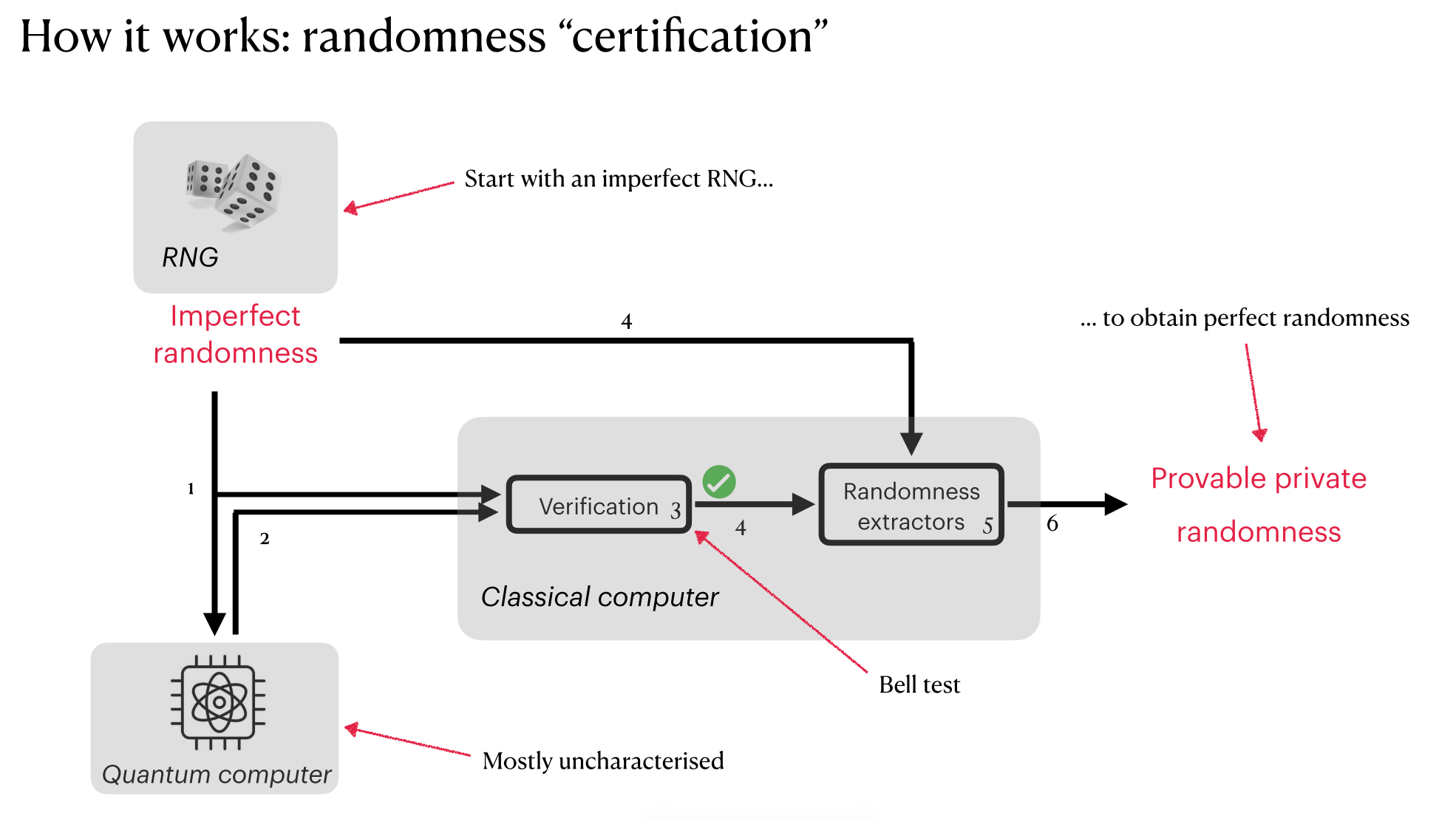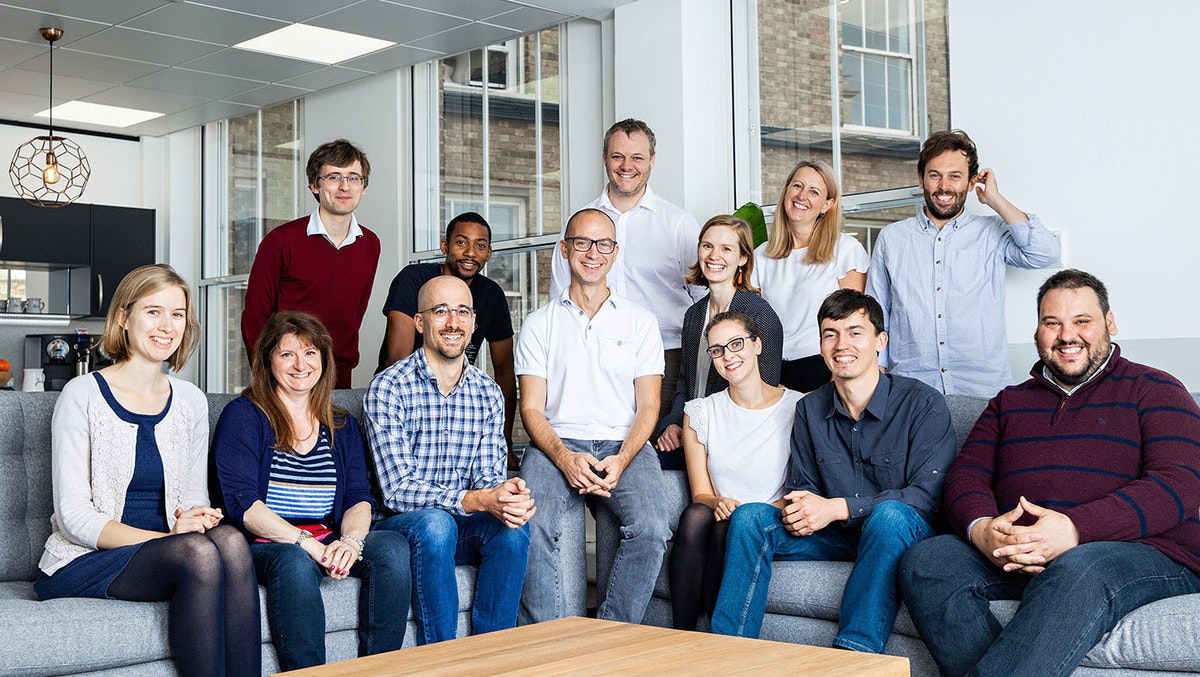A UK-based quantum software startup has today announced the roll-out of a certifiably quantum, cloud-based random number generation service.
The news by Cambridge Quantum Computing may seem esoteric but it’s important for the quantum community.
Randomness is a global commodity — people pay for it by the bit.
This is because random number generation appears to be one of the first uses of quantum computing that big companies might actually be willing to pay for after billions spent on applications that are more theoretically interesting than practical.
A wide range of companies including casinos, insurance companies stress testing their products, banks pricing options and cybersecurity companies selling “uncrackable” codes all have a need for random numbers.
“Randomness is a global commodity — people pay for it by the bit,” says Ilyas Khan, chief executive and founder of CQC, in an interview with Sifted.
The problem is that genuine, verifiable randomness — think of it as the property possessed by a sequence of numbers that makes it impossible to predict the next number in the sequence — is extremely hard to come by. You can simulate randomness in various ways — by sampling atmospheric noise for example — but generally speaking, classical computers are not good at doing this.
Quantum computers, on the other hand, can generate genuinely random numbers. When Google announced last October that it had achieved quantum supremacy — ie got a quantum computer to do something classical computers can't do — the test was around verifying that a set of numbers was randomly distributed.
Although Google's calculation took under 4 minutes, the test took hours of tinkering to set up. CQC, on the other hand, has developed software that can deliver random numbers on demand — and importantly has an integrated verification that proves the numbers came from a quantum computer.

CQC is rolling the service out first to the 100-or-so Fortune 500 companies that are part of IBM’s Q Network, and later in the year to customers more broadly. A second line of business will be to sell cryptography keys that are guaranteed to be quantum-proof.
“This is an exciting step toward making quantum computers practical and useful,” says Anthony Annunziata, Director of the IBM Q Network.
CQC’s Khan says that the announcement demonstrates that European companies will have a big role to play in the next generation of computing.
Britain has a chance to be a leader in quantum. There is no reason it can’t be one of the supermajors in the next phase of computing.
“The bigger story is that this is being done in Britain, not in China or Russia or America,” Khan told Sifted. “Britain has a chance to be a leader in quantum. There is no reason it can’t be one of the supermajors in the next phase of computing.”
Many of the biggest quantum computing projects are dominated by US companies like Google, IBM and Microsoft. But European companies could carve out a role in software, which typically accounts most of the value in computing.
CQC has so far raised $46m, mainly from JSR, the Japanese petrochemicals company, US engineering company Honeywell and IBM, who all own minority stakes in the business. It has so far not taken VC money because “until now financial investors could not have credibly made a decision on the company,” says Kahn.
That may change now that the company begins to roll out software products. A further funding round is likely to be needed to take the company through the next level of commercialisation.
And will CQC resist the fate of so many promising European technology companies — being bought by a US rival?
We’re not interested in being bought.
Khan is adamant that — close collaboration with IBM notwithstanding — he wants the company to stay independent.
“We are ambitious. We are the leader in this space today and we will be the leader for a little time going forward, at least. We’re not interested in being bought.”



